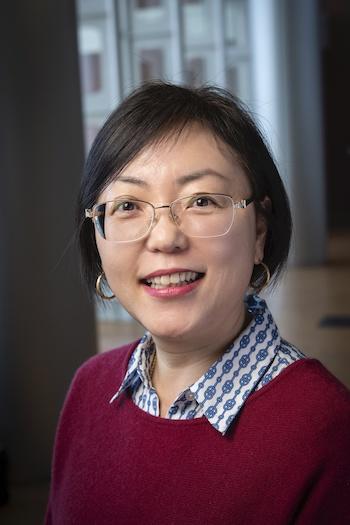The international tourism industry will experience a recovery once the coronavirus pandemic is better under control, according to Min Park, associate professor of tourism and events management in George Mason University’s College of Education and Human Development.
How long the recovery takes depends on several factors, such as how many people worldwide get vaccinated and how quickly countries see their economies rebound, said Park.
“It has been more than a year since we’ve been in the pandemic, with many borders closed and little international travel,” said Park. “The impact on global tourism has been devastating. But there is pent-up demand for travel that will explode when things go back to normal.”
Park said that the most conservative predictions are that it will take five years to reach pre-pandemic levels of global tourism, although more optimistic predictions put that timeframe at closer to two years. She predicts that domestic travel will bounce back faster than global travel.
“Right now, the trend is for people to travel by car over plane, which they perceive as less risky,” said Park. “People are tending to avoid largely populated destinations like cities and theme parks in favor of more remote places.”
Park says that there is a high probability that countries will agree to admit only tourists who have been fully vaccinated. The European Union recently announced that it would open for travel to vaccinated tourists.
As tourism begins to revive, hotels and restaurants will see demand and volume again, said Park. However, they should be prepared for customers that expect businesses to maintain high levels of safety and hygiene protocols. In addition, while Park predicts that work travel will pick up, some trends are here to stay. Park anticipates that some conferences, especially the smaller ones, will remain virtual even after the pandemic is over.
Park also predicts that travelers who can now work remotely will extend their vacations as working holidays. Park also expects the cruise line industry to return as their customer base is very loyal.
“The pandemic has made us realize how precious and crucial travel freedom is to our lives,” said Park. “Overall, travel will return, and tourism will bounce back, but it is up to the industries to adapt to the changing expectations of travelers and innovate based on the lessons learned from the pandemic.”
Min Park’s research is focused on tourism and its interactions with other societal phenomena, such as sharing economy, social media, overtourism, and international politics. Also, she has been published a number of journal articles in the areas of tourism growth and visitor/destination management in tourism and recreation settings. She has been an active member of the research team in Mason’s School of Sport, Recreation, and Tourism Management and has worked with various national and international partners. She can be reached at 703-993-7194 or mparka@gmu.edu.
For more information, contact Anna Stolley Persky at apersky@gmu.edu.
About George Mason
George Mason University is Virginia’s largest public research university. Located near Washington, D.C., Mason enrolls 39,000 students from 130 countries and all 50 states. Mason has grown rapidly over the past half-century and is recognized for its innovation and entrepreneurship, remarkable diversity and commitment to accessibility. Learn more at www2.gmu.edu.

